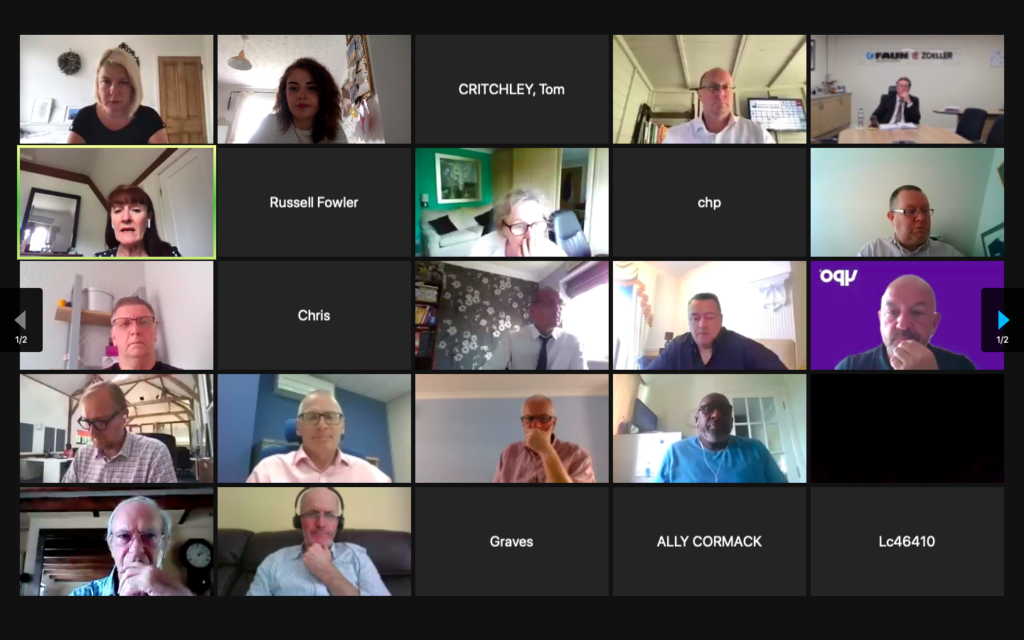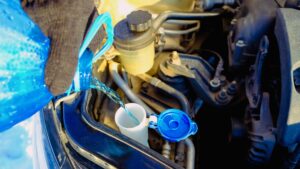The Energy, Fuels & Vehicles working party meeting highlighted that transport needs to be cleaned up today, not tomorrow, as the largest emitter of hazardous emissions. Hydrogen presents a valid option for eco-friendly operations without the limitations that electric vehicles currently have.
Energy, Fuels & Vehicles working party Chair Jason Airey, chaired a mini-conference about hydrogen. He was joined by several leading experts who addressed the potential, challenges, and opportunities of hydrogen can provide for the transport industry.
Jason Airey commented: ‘‘Hydrogen is a complex subject, and it is understandable why there is confusion surrounding this technology in the marketplace. However, green hydrogen offers the potential to decarbonise fleets and reduce their harmful emissions where they cannot adapt to electric because its limitations are ill-suited for HGV operations.’
Charles Purkess, Director of ITM Power, outlined how hydrogen can be produced in an eco-. He also highlighted how decarbonised water and electricity in creating hydrogen distribution have a crucial part in this.
‘A PEM electrolyser facilitates the energy storage of unscheduled renewable energy, through the conversion of electrons to hydrogen via the splitting of water into its constituent parts, addressing power network constraints and grid balancing services, as a rapid response demand side loads,’ Charles Purkess explained.
‘Critically, for decarbonisation, this “vector conversion” to green hydrogen provides a route for renewable energy to decarbonise those industrial sectors and processes (fertiliser steel manufacturing, heat) including heavy transport, that electricity alone cannot reach, thus the PEM electrolyser is critical for achieving Net Zero and aspirations for COP26. THE UK has the world’s first Gigafactory for PEM electrolysis in Sheffield, and is a global leader in the climate critical technology.’
Dr Russell Fowler, Senior Project Manager at National Grid, acknowledged the hydrogen distribution challenges and highlighted how the transport industry is currently the highest emitting source of harmful gases and ultra-fine particulates. As the cost of green hydrogen will fall with take-up, the need for an alternative for electricity for the HGV industry will lead to fleet vehicles requiring 100 hydrogen refuelling stations by 2030. Russell urged the UK Government to act now and start working on hydrogen infrastructure.
Amanda Lyne, Managing Director of ULEMCo, and President of the Hydrogen Council reinforced the overwhelming environmental need to implement a hydrogen infrastructure. She emphasised that we should be changing our fuels right now, instead of waiting any longer. Vehicles that use hydrogen are already on the road and save hundreds of tonnes of CO2 emissions in real-world use, with the same efficiency as diesel.
‘According to the UK’s current emission data, transport is the highest emitting sectors, which means that 2050 is too late for the ice caps, ocean levels, and atmosphere. We need to do something about transport now, and hydrogen provides a number of strategic roles for the UK energy system transformation. This includes flexibility of energy storage, offering a solution for ‘hard to decarbonise’ sectors (such as industrial heating and heavy duty transport), and offers a more cost-effective solution, utilising existing gas and grid assets,’ Amanda Lyne impressed.
Lastly, Simon Hyde, CEO of FAUN Zoeller, demonstrated how Faun Zoeller has a fully functional hydrogen-fuelled RCV on the road, actively collecting waste. He discussed how innovative thinking leads to breakthroughs in getting hydrogen vehicles on the road. In Germany, the Government has invested in setting up a hydrogen infrastructure where vehicles can fuel up at petrol stations. The hydrogen RCV is now travelling around the UK and is being demonstrated to councils and waste operators around the country.
‘It is important that delivering performance does not disrupt operations. FAUN-Zoeller is demonstrating that decarbonisation does not have to mean compromising the efficient of operations. Refilling hydrogen tanks follows the same process as refuelling internal combustion engines: with a pump in module,’ Simon Hyde commented
If you are interested in joining, please email [email protected] to become a WCRAQ member today and defend our inalienable right to breathe clean air.





One thought on “Green hydrogen: Why we need to clean up transport emissions today, not tomorrow”
Comments are closed.